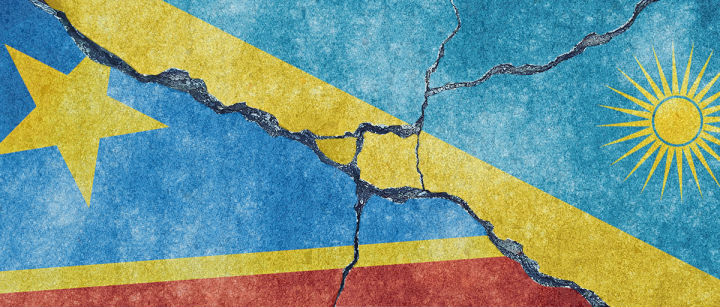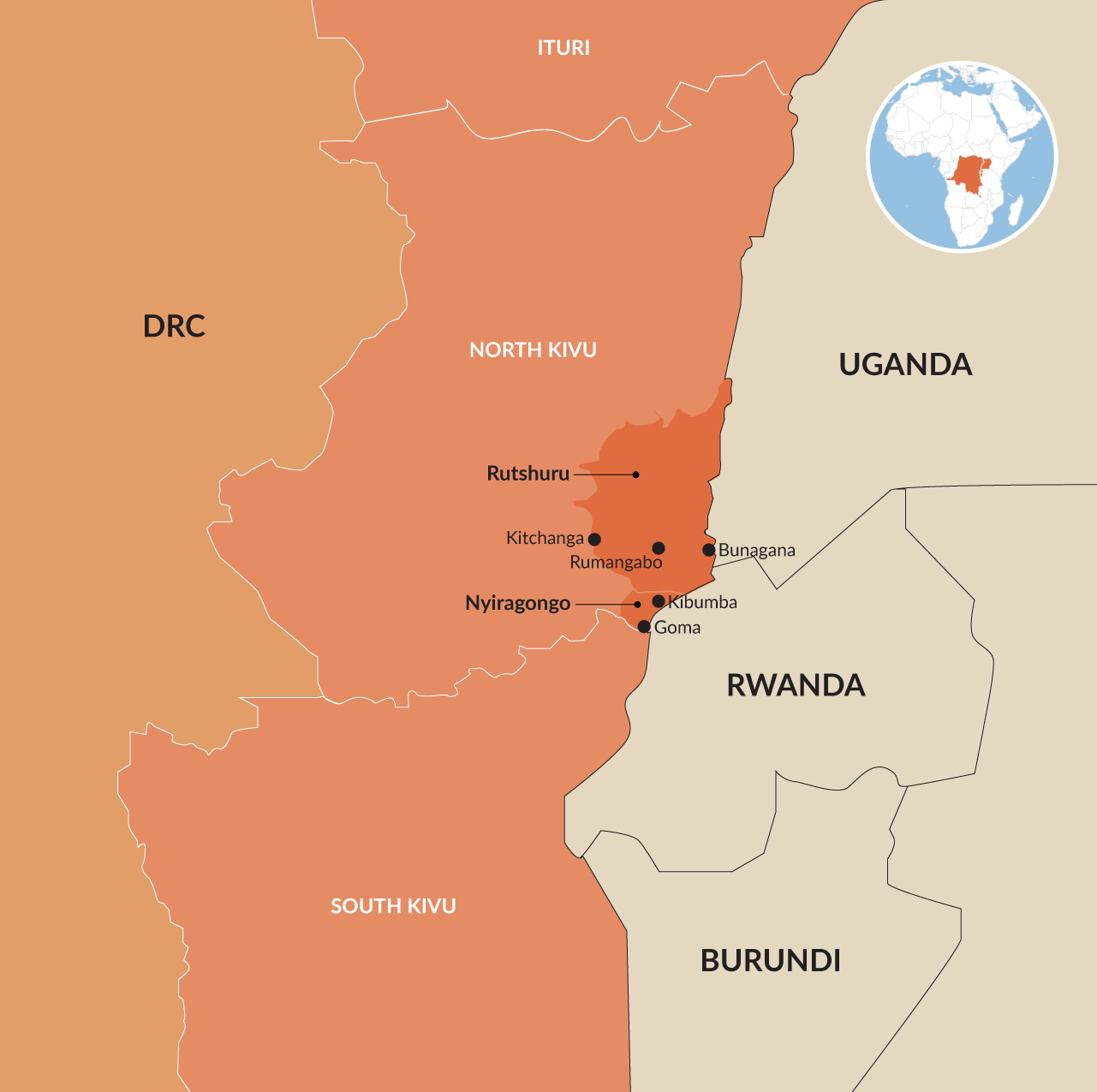ISS TODAY OP-ED
Eastern DRC peace processes falling short of the mark due to inconsistency and poor regional cooperation

Deteriorating security in Democratic Republic of the Congo raises questions about the Nairobi and Luanda processes.
Leaders of East African countries meeting in Burundi’s capital Bujumbura on 4 February again called for an immediate ceasefire in the eastern Democratic Republic of the Congo (DRC) conflict. The region was plunged into violence after the M23 rebel group relaunched its offensives in March 2022.
As diplomatic relations between neighbouring countries worsened, the East African Community brokered the Nairobi Process in November 2022. It is one of two recent efforts to address the crisis — the other being the Luanda Process.
The two initiatives have different but complementary formats. While Nairobi focuses on armed groups, Luanda addresses the DRC-Rwanda political dimensions — a reminder of the 2013 Peace, Security and Cooperation Framework for the DRC and the region, which has not been implemented.
The Nairobi Process calls for an immediate ceasefire, the repatriation of foreign militaries, and adherence by local armed groups to the newly established Disarmament, Demobilization, Community Recovery and Stabilization Program. It authorises the deployment of a regional force in eastern DRC to confront those who don’t heed the disarmament call.
The November 2022 Luanda mini-summit was attended by the presidents of Angola, the DRC and South Sudan. Rwanda’s representation by its foreign affairs minister instead of president Paul Kagame could have been interpreted as a lack of prioritisation by that country.
Luanda endorsed the Nairobi decisions and demanded an end to hostilities by 25 November 2022, the withdrawal of M23 and other armed movements, and the deployment of the East African regional force. The meeting also insisted on ending support to rebels and normalising diplomatic relations.
Before this, the July 2022 Angola, DRC and Rwanda tripartite summit had signed the Luanda roadmap for peace in eastern DRC. Most of the points later adopted in Nairobi and Luanda were discussed at the July meeting, indicating a flurry of resolutions with not enough follow-through.
As negotiations continued, so did the fighting. M23 gained more territory, with little resistance from the Armed Forces of the DRC (FARDC). Apart from M23, many other groups remain active and are used as proxies by the DRC and its neighbours.
Given Rwanda’s alleged support of M23, and the challenges facing DRC’s defence forces, a ceasefire in the immediate future isn’t likely. Since November 2022, atrocities committed by various groups have continued in North and South Kivu and Ituri provinces. Reports of Eastern European mercenaries complicate the volatile situation.

Eastern Democratic Republic of the Congo. (Source: Tanya Harris/ISS)
Visit Daily Maverick’s home page for more news, analysis and investigations
The Kenyan contingent of the East African force was deployed to Goma as planned. Occupied areas in Rutshuru are also anticipated to come under its control. Some 600 Burundian troops are in place, while 750 South Sudanese are expected. Rwandan officers are also part of this force — and not surprisingly, the DRC has demanded their immediate withdrawal.
Despite the initial Kenyan deployment, the situation in the east remains volatile. Although M23 said it would withdraw from Kibumba town in December 2022 and the Rumangabo military camp (Rutshuru territory) on 5 January, there are signs that it remains.
The 4 February Nairobi communiqué confirms that the regional troops will, if necessary, use force to guarantee the withdrawal of M23 and other negative forces. But on the ground, there has been no military pressure on the armed groups, prompting three days of civil society protest. This echoes the frustrations of citizens who criticise the United Nations Organization Stabilization Mission in the Democratic Republic of the Congo (Monusco) for not improving security in over a decade.
One issue hampering the East African force’s effectiveness is its controversial composition. The DRC government was publicly opposed to Rwanda’s participation. Some Congolese politicians are sceptical about Rwanda, Uganda and Burundi’s involvement due to their past record in the DRC. In Uganda’s case, that includes being ordered by the International Criminal Court to pay reparation for crimes committed in the DRC.
South Sudan’s participation is also questionable as the country faces recurrent internal security threats and dire economic problems. Mobilising troops and finance for their deployment abroad is a challenge. So for locals and some DRC politicians, the East African force lacks legitimacy.
Even more complex is the force’s collaboration with Monusco. The UN faces a legitimacy problem manifested in local hostility towards it. At the same time, the DRC government has used local and foreign rebels, providing Rwanda with an excuse to support M23.
The situation shows the limits of both the Nairobi and Luanda processes. Apart from perennial implementation challenges facing East African initiatives, neither military pressure nor the proliferation of peace deals will solve the region’s problems. Ad hoc solutions are also not the answer.
All this questions the achievements of DRC peacebuilding processes over the past two decades — particularly on security sector reform. And it raises doubts about the ability of organisations such as the East African Community, an economic bloc, to mediate and resolve conflicts.
The DRC’s complex conflicts are deeply rooted in historical, local, national and regional grievances. The current crisis requires immediate responses that are well-coordinated and aligned. The African Union, United Nations and other key external partners must help the East African Community to find peace. The international community should re-evaluate the DRC’s security sector reform and the disarmament, demobilisation and reintegration processes.
Most important — pressure must be put on the DRC government to break ranks with armed groups, and on the Rwandan government to end its support of M23. Monusc also has a role to play, according to its mandate that was renewed in December 2022. DM
Remadji Hoinathy, Senior Researcher, Central Africa and Great Lakes, Institute for Security Studies (ISS)
This article was produced with the support of the governments of the Netherlands and Norway.
First published by ISS Today.


















 Become an Insider
Become an Insider
Comments - Please login in order to comment.